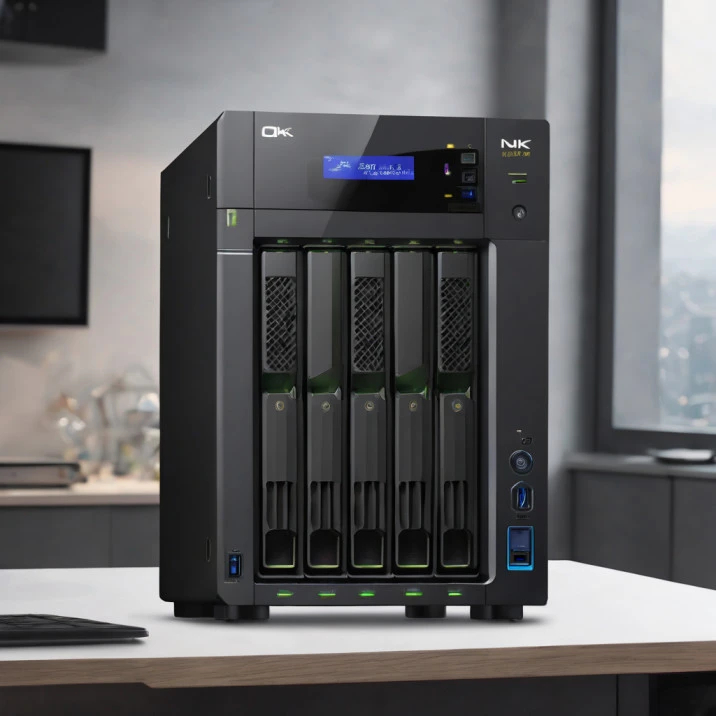Network-attached storage (NAS) devices
Discover the benefits of network-attached storage (NAS) devices for convenient data storage and sharing. Find the best NAS solutions for your needs.

Network-attached storage (NAS) devices
Network-attached storage (NAS) devices are dedicated file storage devices that provide centralized data storage and access to multiple users and client devices over a network. NAS devices are typically connected to a local area network (LAN) and can be accessed by various devices such as computers, laptops, smartphones, and tablets. They offer a convenient and efficient way to store, manage, and share files and data within a network environment.
Key features of NAS devices:
1. Centralized storage: NAS devices provide a centralized storage solution for storing and organizing files, documents, multimedia content, and other data. This allows multiple users within a network to access and share files easily without the need for individual storage devices.
2. File sharing: NAS devices support file sharing capabilities, enabling users to collaborate on documents, share media files, and access shared folders from different devices. This promotes productivity and collaboration within a networked environment.
3. Data backup and recovery: NAS devices often include built-in backup and recovery features to protect data against loss or corruption. Users can schedule automatic backups, create redundant copies of important files, and easily restore data in case of accidental deletion or hardware failure.
4. Remote access: Many NAS devices offer remote access functionality, allowing users to access their files and data from anywhere using the internet. This feature is particularly useful for remote workers, travelers, and individuals who need to access their files on the go.
5. Scalability: NAS devices are scalable storage solutions that can be easily expanded to accommodate growing storage needs. Users can add additional hard drives or upgrade existing drives to increase storage capacity and performance as required.
6. Data protection and security: NAS devices typically include data protection features such as RAID (Redundant Array of Independent Disks) configurations, encryption, access controls, and antivirus software to safeguard data against unauthorized access, data loss, and security threats.
Benefits of using NAS devices:
1. Improved data management: NAS devices simplify data management by providing a centralized location for storing and organizing files. Users can easily access, share, and manage their data without relying on individual storage devices.
2. Enhanced collaboration: NAS devices facilitate file sharing and collaboration among users within a network, making it easier to work on projects, share resources, and communicate effectively. This promotes teamwork and productivity in a business or educational setting.
3. Data protection and backup: NAS devices offer data protection features such as backup, recovery, and redundancy to ensure that critical data is safe and secure. By implementing regular backups and data protection measures, users can minimize the risk of data loss and ensure business continuity.
4. Remote access and flexibility: NAS devices enable remote access to files and data, allowing users to work from anywhere and access their files on the go. This flexibility is especially beneficial for remote workers, telecommuters, and mobile professionals who need to stay connected and productive outside the office.
5. Cost-effective storage solution: NAS devices provide a cost-effective storage solution for small businesses, home users, and organizations with limited IT budgets. By centralizing storage and sharing resources, NAS devices help reduce hardware costs, simplify data management, and improve operational efficiency.
6. Easy setup and maintenance: NAS devices are easy to set up and maintain, requiring minimal technical expertise to configure and manage. Most NAS devices offer user-friendly interfaces, automated backups, and software updates to streamline the setup and maintenance process.
Overall, NAS devices offer a reliable, efficient, and scalable storage solution for individuals, businesses, and organizations looking to centralize data storage, improve collaboration, and protect critical data within a networked environment.
What's Your Reaction?

















